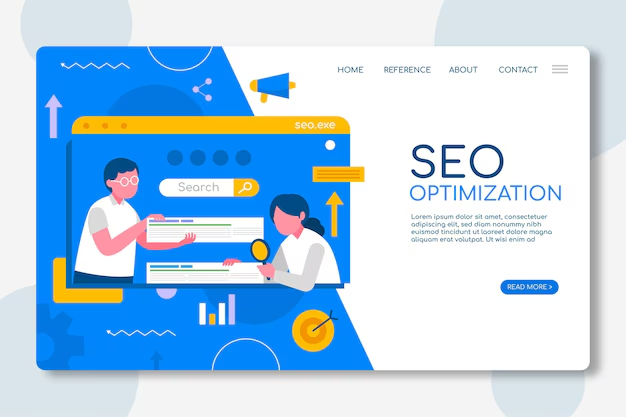When it comes to building a blog or website, choosing the right platform is crucial, especially if you want to achieve high rankings on search engines like Google. Two of the most popular blogging platforms are WordPress and Blogger, each offering different features and benefits. But which one is better for SEO? In this post, we’ll compare WordPress and Blogger in terms of their SEO performance to help you decide which platform can give you an edge in search engine optimization.
Understanding WordPress and Blogger
Before diving into the SEO comparison, let's briefly introduce each platform:
- WordPress: WordPress is a highly versatile and widely used content management system (CMS). It comes in two versions—WordPress.com (hosted) and WordPress.org (self-hosted). While the hosted version is suitable for beginners, the self-hosted WordPress.org provides complete control over your website, making it ideal for those who want advanced customization and better SEO options.
- Blogger: Blogger, owned by Google, is a free blogging platform that offers a simple way to create and manage a blog. It’s a good choice for beginners who want a straightforward setup without worrying about hosting. However, the limited customization options might be a drawback for those looking to scale their site.
1. Customization and Flexibility
One of the key factors that affect SEO is the ability to customize your website's structure, meta tags, and other technical elements. Here’s how WordPress and Blogger compare in this regard:
- WordPress: WordPress excels in terms of customization. With access to a wide range of plugins, themes, and custom code options, you can optimize every aspect of your site’s SEO. You can easily edit meta titles, descriptions, image alt texts, and other on-page elements. Plugins like All in One SEO and Rank Math further simplify the SEO process, providing suggestions for improvements and ensuring your content is optimized for search engines.
- Blogger: Blogger is more limited when it comes to customization. While you can edit basic meta tags like titles and descriptions, it lacks the flexibility and advanced SEO plugins that WordPress offers. This means you may have a harder time optimizing your site for specific SEO requirements, which could impact your site's performance in search results.
2. Control Over Website Speed and Performance
Website speed is an important ranking factor, and a fast-loading site can improve user experience and boost SEO. Here’s how each platform handles website speed:
- WordPress: With WordPress, you have complete control over your hosting environment, allowing you to choose a high-performance hosting provider and configure caching plugins like WP Rocket or W3 Total Cache. This can significantly improve your site's loading times. Additionally, you can optimize images, minify CSS and JavaScript, and leverage a content delivery network (CDN) for even better performance.
- Blogger: Blogger is hosted on Google’s servers, which generally ensures decent speed and uptime. However, you have little control over the server settings, and advanced optimizations are not possible. While Blogger sites tend to load quickly due to Google’s infrastructure, the inability to make technical adjustments can limit your potential for further speed improvements.
3. Domain and URL Structure
The structure of your website's URLs can impact its visibility in search engines. Here's how WordPress and Blogger handle domain and URL structure:
- WordPress: WordPress allows you to use a custom domain and offers complete control over your URL structure. You can create SEO-friendly URLs that include relevant keywords, which can improve your site’s search engine rankings. For example, you can easily create a URL like https://yoursite.com/seo-tips for a blog post about SEO tips.
- Blogger: While you can use a custom domain with Blogger, the platform’s default URL structure is less flexible. For example, a post URL might look like https://yourblog.blogspot.com/2024/10/seo-tips.html. This structure is not as clean or keyword-focused as the URLs you can create with WordPress, which could impact the site's SEO performance.
4. Mobile Optimization and Responsiveness
With mobile searches making up a large portion of online traffic, having a mobile-friendly site is crucial for SEO. Here’s how WordPress and Blogger handle mobile optimization:
- WordPress: Most WordPress themes are responsive and adapt well to mobile devices. Additionally, you can use plugins to create a mobile version of your site or further optimize the mobile experience. The flexibility of WordPress ensures that your site provides an optimal user experience on smartphones and tablets, which is beneficial for SEO.
- Blogger: Blogger offers responsive templates, ensuring that your site is viewable on mobile devices. However, the lack of customization options means that you may have fewer options for optimizing the mobile experience. While Blogger's mobile templates are functional, they lack the advanced features that WordPress offers, which could affect user engagement and bounce rates on mobile devices.
5. SEO Plugins and Tools
The availability of SEO tools and plugins can make a significant difference in your ability to optimize your site. Here’s how the two platforms compare:
- WordPress: One of WordPress’s biggest advantages is its compatibility with SEO plugins like Yoast SEO, Rank Math, and All in One SEO Pack. These plugins offer comprehensive tools to optimize your site’s on-page and technical SEO, such as keyword analysis, content readability, and XML sitemap creation. Additionally, WordPress integrates well with Google Analytics and Google Search Console, allowing you to monitor your site’s performance closely.
- Blogger: Blogger does not support third-party plugins, limiting the range of SEO tools available. You can still integrate Google Analytics and Google Search Console, but you won’t have access to advanced SEO features. This can make it more challenging to optimize your site comprehensively for search engines compared to WordPress.
6. Ownership and Control
When it comes to SEO, having control over your website is crucial. Here’s how WordPress and Blogger differ in terms of ownership and control:
- WordPress: With the self-hosted version of WordPress, you have full ownership and control over your website. This means you can make changes to your site's structure, move to a different hosting provider, or even migrate to another platform if needed. This level of control allows you to adapt your SEO strategy as search engine algorithms evolve.
- Blogger: Blogger is a hosted platform, which means Google has more control over your website. While this can be convenient for beginners, it also means that you have less control over your site’s data and customization options. If Google decides to change its policies or discontinue the platform, it could impact your site’s visibility and performance.
Conclusion: Which Platform Is Better for SEO?
In the battle of WordPress vs Blogger, WordPress comes out on top for SEO performance. Its flexibility, access to advanced SEO plugins, customizable URL structures, and control over site speed give it a significant edge over Blogger. While Blogger may be suitable for those looking for a simple and hassle-free blogging experience, WordPress is the better choice for users who want to maximize their site's visibility and rankings on search engines.
If your goal is to build a professional website with a strong focus on SEO, then investing in a self-hosted WordPress site is the way to go. With the right plugins and SEO strategies, you can ensure that your WordPress site reaches its full potential in the search engine rankings.






